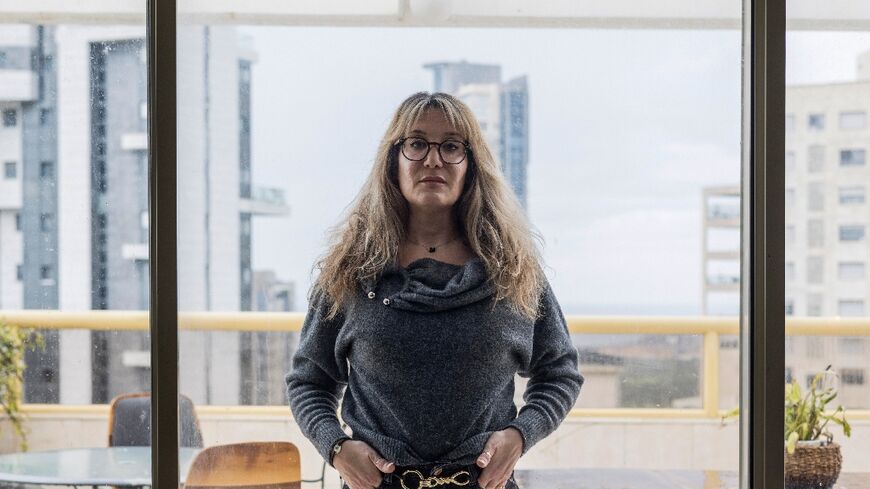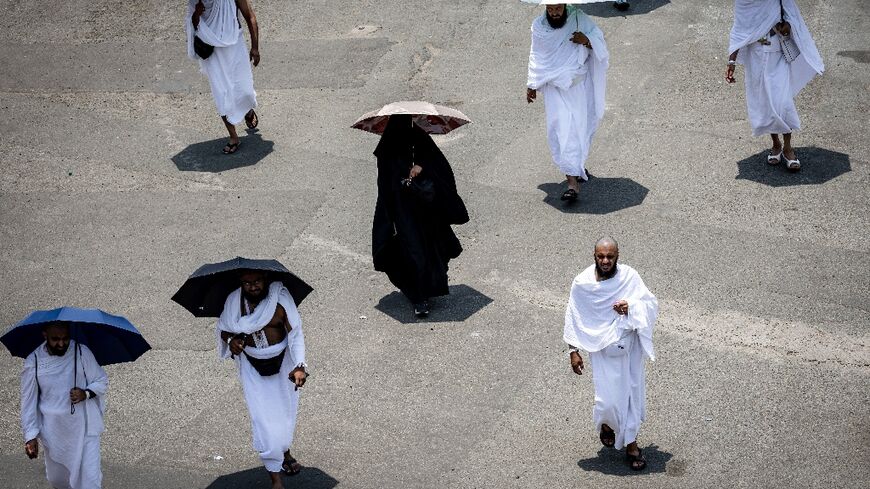October 7 survivor recalls 'trauma' of attack that killed husband, son

On October 7, Sabine Taasa watched her husband die to save two of their children as Hamas militants attacked their village in southern Israel, before learning that her eldest had been killed elsewhere.
Despite her trauma, she is determined the world should know about it.
"I will tell my story, I want everyone to know what happened," the 48-year-old French Israeli told AFP in an interview ahead of a trip to Paris for a memorial service for French victims of the Hamas attack.
Taasa moved to Israel in 1992 and a decade later settled in the village of Netiv Haasara, which sits on the northern border of the Gaza Strip, alongside her husband Gil.
At dawn on October 7, Hamas fighters stormed the village and began killing its inhabitants.
When they entered Taasa's home, her husband, a firefighter, grabbed his handgun to fight back. The militants lobbed a grenade at him and he threw himself on top of it to protect his children.
"My little one has his eye hanging half out (of its socket), both are covered in blood and Koren, 12 years old, tells me that daddy is dead," Taasa said.
She tried to call for help, but in vain. "My children are bleeding to death and nobody is answering me. Where is the army? The police?" she continued.
Taasa decided to film her wounded children and sent the video to all of her contacts. AFP received a copy of the video.
In it, the two children are seen lying on a bed covered in blood and wounds, while their mother begs for help, crying.
Taasa was eventually evacuated in an armoured vehicle with three of her children, including her youngest, eight-year-old Shay.
She only had time to cradle the body of her husband for a brief moment before leaving.
- 'Scarred for life' -
Her oldest child, 17-year-old Or, left early in the morning with friends for the beach at Zikim, a few kilometres (miles) from Netiv Haasara.
"I call him around 6:30 am and he tells me that he is with friends in a shelter," she said, holding back tears.
"Ten minutes later, my son was dead," she said. "They (Hamas) came in from the beach and shot everyone."
That morning, 19 people were killed on Zikim beach.
Taasa would only learn of her son's fate that evening, while at the bedside of her two wounded children. It was another two weeks before she was able to bury him, because of the time it took to identify his body.
The Hamas attack -- the largest in Israel since its formation 75 years ago -- resulted in the deaths of around 1,160 people, mostly civilians, according to an AFP tally based on official Israeli figures.
Vowing to eliminate Hamas in response, Israel launched a massive military offensive that has killed at least 27,365 people in Gaza, mostly women and children, according to the health ministry in the Hamas-ruled territory.
Now living temporarily in Netanya, in central Israel, Taasa remains defiant despite her grief.
"I have decided to fight. Firstly, for my three sons. Secondly, for me. Thirdly, for the State of Israel. And fourthly, (so that) everyone will know the truth.
"I will tell people that my husband jumped on a grenade to save his children, that my son lost his sight and is scarred for life, not to mention the (psychological) trauma," she said.





